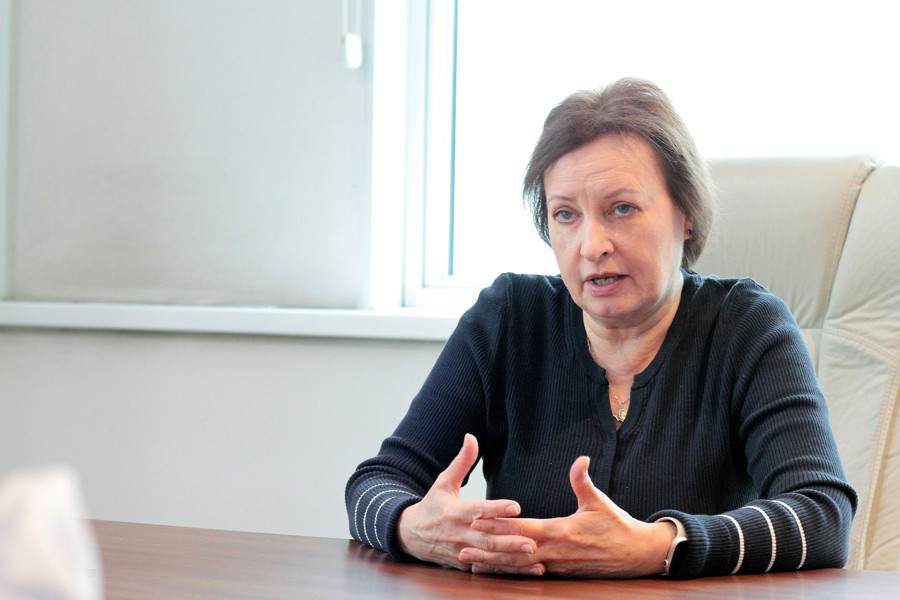Kazakhstan's Prime Minister Karim MASIMOV:
PRIME MINISTER OF KAZAKHSTAN HAILS FRIENDLY TIES WITH RUSSIA

As the country holding the rotating presidency of the Organization for Security and Cooperation in Europe, Kazakhstan has set out to hold an OSCE summit in Astana in December. It is expected that the heads of member countries will discuss the most pressing issues of international security to resolve a number of international conflicts. The Prime Minister of Kazakhstan, Karim Masimov, has kindly agreed to tell Interfax about the upcoming summit, Kazakhstan's place in the OSCE and other important issues.
- Karim Kazhimkanovich, Kazakhstan is currently chairing the OSCE. How would you access the presidency? Leaders of quite a few countries believe that this organization has lost its relevance, seems incapable to address modern challenges and needs to be transformed. How do you perceive the idea of new European security architecture?
- I believe that the Organization for Security and Cooperation in Europe has proved its sufficiency. The OSCE objectives interlinked with Kazakhstan's interests in 1991, when the country gained independence after the collapse of the Soviet Union. The organization had to deal with a host of important issues since its very establishment. Even though some of the topics were more favorable than the others, most of them found their practical solution within the OSCE framework.
I would like to remind that Kazakhstan was delegated to represent common interests of the CIS states in the OSCE in 2004. Kazakhstan's OSCE chairmanship bears great importance both for the organization and our country.
Kazakhstan plans to hold a summit of heads of the OSCE member-states in December. The organization has not held such a meeting since 1999. The last summit was held in Istanbul. Kazakhstan is going to hold the next one on 1-2 December.
In my opinion there are several important issues that need to be discussed, such as human rights, democracy, freedom of speech and stability in Central Asia.
The settlement of the current Afghan situation and the so-called "frozen conflicts", for instance the Karabakh conflict between Armenia and Azerbaijan, is also extremely relevant.
I believe that discussions and possible solutions at the upcoming summit will be of great value to both the OSCE and Kazakhstan's Chairmanship.
Russia's proposal on the new European security architecture is
the issue that should be discussed by various international organizations including
the OSCE.
- How would you assess the current state of relations between Kazakhstan and Russia?
- I believe that Kazakhstan and Russia have always been in good relations that will only prosper with the creation of new integration associations.
- Kazakhstan and Russia are completing negotiations on accession to the WTO. Belarus is lagging behind. Do you think Kazakhstan is ready to join the WTO independently, or it plans to act simultaneously with Russia, or Astana and Moscow wait for Minsk to catch up?
- We have an agreement, which has been once again confirmed at a meeting of the CIS Council of Heads of Governments in St. Petersburg, to join the WTO simultaneously with Russia and on the same terms.
- Could you tell us about Kazakhstan's response to Russia's plans to build the Vostsochnyi spaceport and move part of its space programs from Baikonur? Do you think Kazakhstan is changing its priorities or simply diversifying its options on the look-out for new partners, when it sets up joint ventures with western space companies, particularly with France?
- Frankly speaking, I do not see an option to Baikonur to appear in the foreseeable future. I think that new projects in this sector are the very expensive endeavors that require a huge amount of resources and time. But of course, I wish the Russian space agency good luck and success in this project.
Kazakhstan and Russia sealed relevant lease agreements regarding Baikonur cosmodrome, which were ratified by our parliaments. We are committed to meet our end of obligations.
As for attracting other partners to build satellites and implement
other joint programs, it is a sovereign right of each country, which invests
in the space industry.
- President of Kazakhstan has recently voiced a proposition to introduce a five-year moratorium on sturgeon fishing in the Caspian Sea. Do you think these additional measures will bring any effect? When do you think the ban is most likely to come into effect?
- A moratorium on sturgeon fishing is the least that we can do. The USSR and Iran had undertaken such measure in the 40s, however the 10-year effort did not benefit the growth of sturgeon population.
We believe it is a necessary measure to stabilize the situation.
It is hard to tell now, if a 5-year ban would be enough, but I suppose we have
to start at some point. Governments of the Caspian region have agreed to prepare
all necessary documents in 3 months, I think we can meet the deadline.
- The Government of Kazakhstan has raised its stake in the Kazakhmys corporation, the country's largest copper producer. Where did that decision come from? What further plans Kazakhstan has in respect of the company?
- We felt at that stage that investing into the company would benefit the national interests of Kazakhstan. When market conditions become favorable, we may further raise our stake in the company and sell it afterwards. It will depend on how the market will be developing. We believe that at this stage, we made a sensible and necessary decision.
- Does Kazakhstan still have plans to partner with Russia in the construction of Kazakhstan's first nuclear power plant (NPP) in the city of Aktau?
- Yes, we do have such agreements. We are currently revising our plans, but we haven't abandoned them.
- Thank you for the interview!
November, 2010
й 2009 Interfax-Kazakhstan news agency
References are obligatory
November, 2010
© 2026 Interfax-Kazakhstan news agency
Copying and use of these materials without reference to the source is prohibited
Archive





